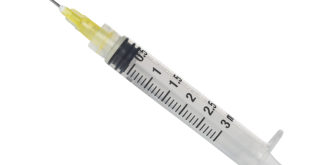Is anesthesia safe for young brains? If your kid needs surgery, this difficult topic is sure to grab your attention.
The FDA recently released a safety advisory on the use of General Anesthetics and Sedation drugs in young children and pregnant women. You can go and read the entire statement here.
I will discuss some of the more salient points below and tell you about my discussions with some family members as they were grappling with these very issues several years ago.
What, exactly, did the FDA say about anesthetic and sedation drugs in children? Here’s the meat of their statement:
“repeated or lengthy use of general anesthetic and sedation drugs during surgeries or procedures in children younger than 3 years or in pregnant women during their third trimester may affect the development of children’s brains.”
They went on to say that animal studies and recent human studies did not show any negative effects on behavior or learning when the child’s exposure was one, relatively short anesthetic. But again, they caution that more research is necessary to fully understand the effects of anesthesia on the early development of the brain.
The FDA statement goes on to affirm that anesthetic and sedation drugs are necessary for pregnant women, infants, and children that have to undergo painful procedures or surgeries for conditions that may be life-threatening. They also acknowledge that untreated pain can also be harmful to young kids and their developing nervous system.
Here’s the FDA’s suggestion for health care professionals:
“balance the benefits of appropriate anesthesia in young children and pregnant women against the potential risks, especially for procedures that may last longer than 3 hours or if multiple procedures are required in children under 3 years. Discuss with parents, caregivers, and pregnant women the benefits, risks, and appropriate timing of surgery or procedures requiring anesthetic and sedation drugs.”
What about their advice to parents, pregnant women, and/or caregivers?
“discuss with their child’s health care professional the potential adverse effects of anesthesia on brain development, as well as the appropriate timing of procedures that can be delayed without jeopardizing their child’s health.”
They go on to say that some of the studies done in young children seem to align with studies done in animals; that repeated, long (greater than 3 hours) exposures to anesthesia in children under 3 seems to affect early brain development. They go on to mention that the studies in children had limitations and it is still unclear if the negative effects in children’s learning and behavior are due to anesthetic drugs, or other factors (like the underlying medical condition that led to the need for surgery in the first place).
Here is a list of the anesthesia drugs that fall under this advisory:
Anesthesia “gases” (inhaled anesthetics): Sevoflurane, Desflurane, Isoflurane, Halothane
Intravenous anesthesia/sedation drugs: Propofol, Etomidate, Ketamine, Midazolam, Lorazepam, Methohexital, Pentobarbital
No specific drug has been shown to be safer than another.
***
Several years ago, I had discussions about this very topic with some family members.
Their child had a skin condition that could benefit from laser treatment. They wanted their child to have as normal an early childhood as possible. Getting treatment earlier rather than later would help the child “normalize” quicker and hopefully not have any memories of this condition.
We all know how cruel grade school children can be.
The treatments, however, would require anesthesia. Repeatedly. Being conscientious parents, they had read up on and really thought about the risks, benefits, and alternatives of this treatment. This was no hasty decision. They were doing everything possible to actually make an informed decision.
Part of that consideration, was the potential long term effects of anesthesia. There were no definitive answers at the time (and there still don’t appear to be).
And I get it. It’s really tough to study long term effects of anesthesia on children.
One potential benefit of this FDA statement is to get parents to talk more to their anesthesiologist about the effects of anesthesia. Sometimes, the anesthesia is an after-thought.
Parents–please be open with your anesthesiologist about any questions you might have about the anesthetic. We want to take the best possible care of your child, and we want you to be comfortable with our care.
But there are a couple issues here still.
First, we still don’t know if the long term effects on early brain development are a result of the anesthetic or other factors (like the underlying medical condition).
Second, I’m just not aware of many truly elective procedures that are done on children under three years old. Most procedures/surgeries performed on children that young typically have at the very least some urgency about them.
If you are aware of any truly elective procedures in children under 3 years of age, please list them in the comments below.
Hopefully, the information provided in this FDA statement will stimulate better communication and understanding between doctors and parents. My fear is that it may also cause undue stress to parents and doctors as they do their very best to take great care of these precious young kids.
 Anesthesia Myths: Get the Facts, Lose the Fear | Your #1 Anesthesia Resource in Simple language
Anesthesia Myths: Get the Facts, Lose the Fear | Your #1 Anesthesia Resource in Simple language




